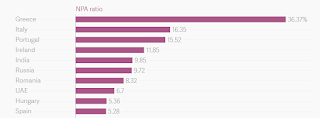The chart below shows the returns from gold and silver in Indian rupees during last few years.
Interest rates in India currently are about 7%. While the average returns from gold/silver is above 12%. This is why many Indian prefer to invest in precious metals instead of bank deposits.
During the last 17 years (1-Jan-2001 to 31-Dec-2017), average Indian stock market returns are 17.9% (based on Nifty index); but while investing in stock market taxes and commissions are deducted. So the actual return, in hand, to the investor is much lesser. Since most buy/sell of gold/silver happens in cash, usually no taxes are paid. Hence Indians prefer gold/silver investment as compared to stock markets.


